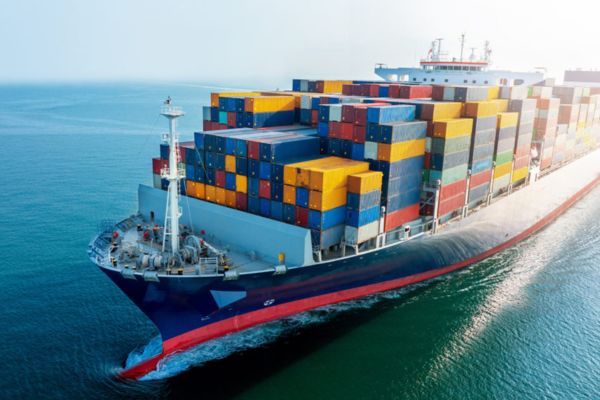The dawn of AI holds significant potential to radically transform logistics and supply chain management. Logistics intelligence and AI herald a new era of efficiency and optimisation. As the world adapts to the digital age, the amalgamation of the two promises to revolutionise supply chains, changing how things work from procurement to delivery. Needless to say, this promising innovation sparks discussions about both its promising capabilities and potential drawbacks.
However, AI’s transformative potential in logistics intelligence illuminates how it optimises shipping economics and redefines the future of mobility.
Optimising Shipping Economics with AI
The widespread adoption of Artificial Intelligence (AI) in logistics represents a profound shift in how businesses navigate the intricate web of supply chain operations. By leveraging intelligent monitoring, predictive analytics, and data-driven decision-making, AI empowers stakeholders to streamline processes, enhance delivery precision, and mitigate costs and risks.
One of AI’s most transformative applications in logistics is using historical data to inform decision-making. For instance, AI-backed features like courier recommendation engines enable sellers to select the best courier partners based on various parameters such as cost, speed, and priority. This not only optimises logistics operations but also enhances customer satisfaction by ensuring timely and cost-effective deliveries.
The biggest loss sellers incur is RTO (Return to Origin). On average, about 20-30% of the shipments fail to be delivered due to incorrect addresses, cancellation of impulsive COD orders by buyers, and many other reasons. Predictive data plays a crucial role in verifying the accuracy of buyer addresses. If an address is not in the required format, the system flags it for review, reducing the risk of delivery errors. Additionally, predictive analytics can assess the likelihood of a shipment being successfully delivered or returned to its origin. This is done through an RTO Meter, which helps businesses anticipate and mitigate potential delivery issues, saving time and money.
Beyond the delivery process, AI significantly enhances the post-purchase experience. By analysing real-time data and understanding buyer preferences, AI can send personalised communications through preferred channels, informing customers about their shipment status. This includes sharing the estimated delivery date based on actual scenarios on the routes, thus providing a more transparent and reliable service.
From real-time tracking to proactive risk management, AI-driven solutions offer unprecedented visibility and control over the movement of goods, empowering sellers to optimise transportation spending and deliver superior customer experiences.
Enhancing Delivery with Route Optimization
Route optimisation is another way of keeping track of shipments, which utilises dynamic routing algorithms by employing machine learning models. Dynamically adjusts delivery routes based on real-time traffic data. These algorithms learn the best routes by continuously updating and optimising based on new data. Additionally, predictive analytics plays a crucial role. Predictive models forecast traffic conditions along potential delivery routes by analysing historical traffic data and current trends. These models can predict future congestion and suggest alternative routes before issues arise. Lastly, the system provides real-time recommendations to drivers via their GPS devices or mobile apps. If a traffic jam or road closure is detected, the system immediately suggests a faster alternative route.
The onset of the COVID-19 pandemic accelerated a digital revolution in retail, propelling eCommerce to new heights. India, with its promising e-retail market, witnessed a surge in online shopping, prompting retailers to digitise operations on a massive scale. However, mere digital presence is no longer sufficient to meet consumer expectations. The future of retail lies in leveraging cutting-edge technologies to craft personalised, seamless experiences for shoppers.
The Vision for 2030: Safety, Accessibility, and Affordability
Looking ahead to 2030, the vision for logistics and mobility encompasses a collective commitment to safety, accessibility, and affordability. In a country like India, where online shopping demands are skyrocketing amid an extensive road network, the role of technology in shaping delivery behaviour is paramount. AI-powered algorithms play a pivotal role in enhancing and optimising route product safety and improving delivery efficiency, thereby reducing fatalities and enhancing the overall quality of service.
The advent of AI-driven shipping insights has far-reaching implications for both businesses and consumers. By providing real-time tracking, estimated delivery times, and actionable insights, AI empowers sellers to manage logistics, minimise risks, and optimize costs proactively. This heightened visibility enhances operational efficiency and fosters trust and transparency, resulting in a superior delivery experience for end consumers.
The Future of Logistics
The fusion of AI and logistics intelligence represents a paradigm shift in how we perceive and manage supply chain operations. By harnessing the power of AI, businesses can unlock new levels of efficiency, agility, and resilience in an increasingly complex and interconnected world. As we navigate the future of eCommerce, embracing AI-driven solutions will be essential in driving sustainable growth, fostering innovation, and delivering value to stakeholders across the logistics ecosystem.

















